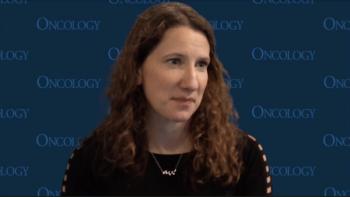
Based on findings from a real-world retrospective analysis, Stacey A. Cohen, MD, discussed the prognostic value of post-surgical minimal residual disease detection in patients with stage I to III colorectal cancer.

Your AI-Trained Oncology Knowledge Connection!


Based on findings from a real-world retrospective analysis, Stacey A. Cohen, MD, discussed the prognostic value of post-surgical minimal residual disease detection in patients with stage I to III colorectal cancer.
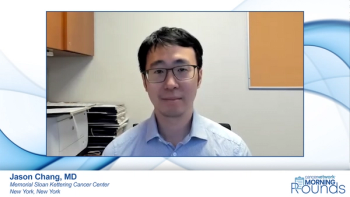
Closing out their review of the second patient scenario, panelists define treatment options for NSCLC with both EGFR mutation and PD-L1 expression.
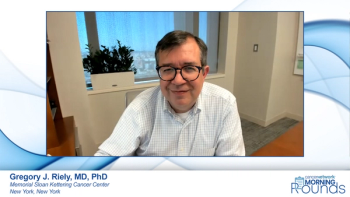
Expert oncologists consider how they would approach molecular testing in a 73-year-old Asian woman diagnosed with advanced non–small cell lung cancer.
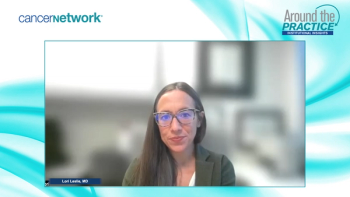
Dr Lori Leslie provides an overview of key clinical trial data on the use of CAR T-cell therapy in chronic lymphocytic leukemia.
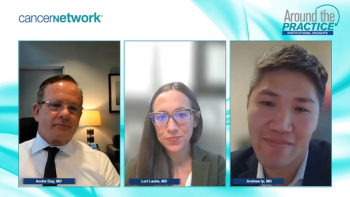
Drs Goy and Leslie converse on the use of CAR T-cell therapy in acute lymphoblastic lymphoma, the first approved treatment for ALL.
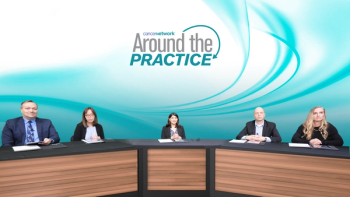
Dr Rebecca Silbermann discusses the results of studies evaluating MRD-response adapted therapy in patients with transplant-eligible NDMM.

Surbhi Sidana, MD, and Caitlin Costello, MD, introduce the updated evidence regarding induction regimens for patients with transplant-eligible NDMM and how to select the appropriate induction regimen in this population.
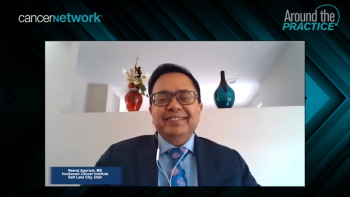
Expert perspectives on the utilization of genomic profiling in patients with metastatic castration-sensitive prostate cancer to impact treatment decisions.
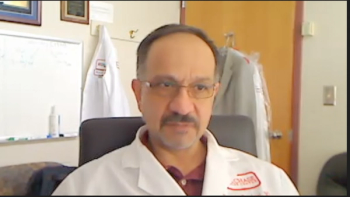
Hossein Borghaei, DO, MS, discussed where investigators may drive future research following the phase 2 Lung-MAP trial examining pembrolizumab and ramucirumab in previously treated advanced non–small cell lung cancer.
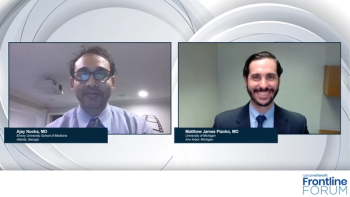
Dr Ajay Nooka describes key data from the uniquely-designed MASTER trial investigating daratumumab in combination with carfilzomib, lenalidomide and dexamethasone (Dara-KRd) versus KRd in transplant-eligible newly diagnosed multiple myeloma.

Matthew James Pianko, MD, provides an overview of the recently updated data from the GRIFFIN trial and the role of quadruplet versus triplet regimens in the treatment landscape of transplant-eligible newly diagnosed multiple myeloma.
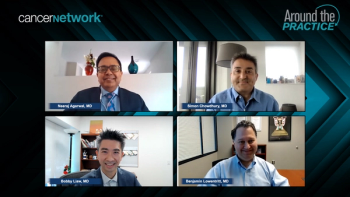
A brief discussion on the use of doublet versus triplet therapy in patients with low-volume metastatic prostate cancer.
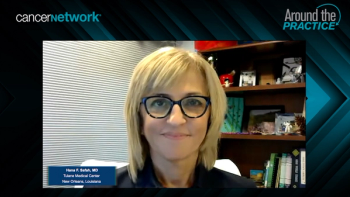
Comprehensive discussion on the pharmacologic treatment armamentarium available for patients with chronic graft vs host disease.
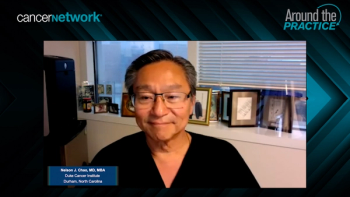
Expert hematologist/oncologists highlight challenges in staging chronic graft vs host disease and share strategies to optimize cGHVD assessment.

Treatment with fam-trastuzumab deruxtecan-nxki yielded promising patient-reported outcomes in patients with hormone receptor–positive, HER2-low metastatic breast cancer, according to Naoto Ueno, MD, PhD.
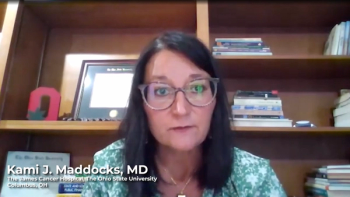
Kami J. Maddocks, MD, reviews findings from the SHINE trial comparing ibrutinib plus bendamustine/rituximab vs bendamustine/rituximab alone in newly diagnosed mantle cell lymphoma.
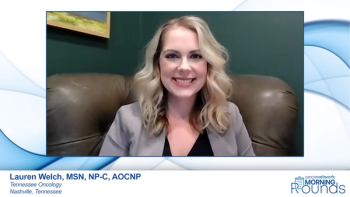
Focusing on second-line treatment options for EGFR-mutated advanced NSCLC, panelists review the use of mobocertinib and amivantamab, respectively.
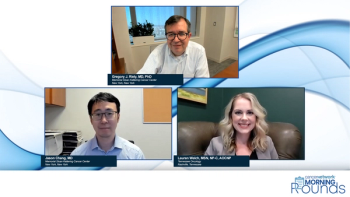
Experts briefly reflect on optimal frontline treatment strategies for a patient who presents with EGFR-mutated advanced non–small cell lung cancer.

Lori Leslie, MD, explains how CAR T-cell therapy fits into follicular lymphoma treatment sequencing, highlighting data from the ZUMA-5 trial.

Andre Goy, MD, and Andrew Ip, MD, give an overview of the approval of CAR T-cell therapy for mantle cell lymphoma treatment.
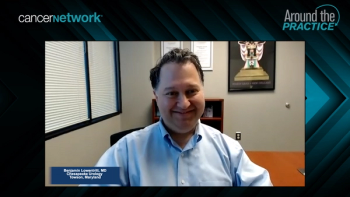
Expert panelists consider which factors would push them toward utilizing triplet therapy in patients with metastatic castration-sensitive prostate cancer.
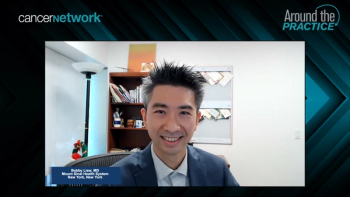
Centering discussion on a patient case of high-volume metastatic CSPC, expert panelists review the option of triplet therapy based on the PEACE-1 trial.
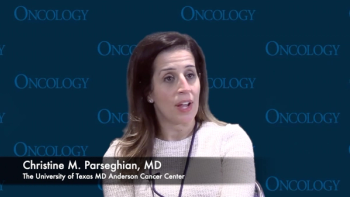
At the 2022 ASCO Annual Meeting, Christine Parseghian, MD, reviewed results from a phase 2 trial assessing efficacy of panitumumab plus or minus trametinib in patients with RAS/BRAF wild-type colorectal cancer and compared EGFR rechallenge strategies with available agents in the third-line setting.
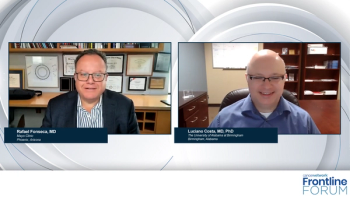
Drs Costa and Fonesca close out their discussion by highlighting the endemic racial disparities in multiple myeloma treatment.

A look at some of the unmet needs in transplant-ineligible multiple myeloma, particularly within the unfit patient population.

Phillip H. Kuo, MD, PhD, spoke about incorporating prostate-specific membrane antigen–PET imaging into multidisciplinary care for patients with metastatic castration-resistant prostate cancer.
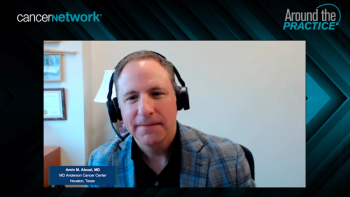
After reviewing a clinical scenario of chronic graft vs host disease, panelists consider the importance of different allogeneic transplant types.
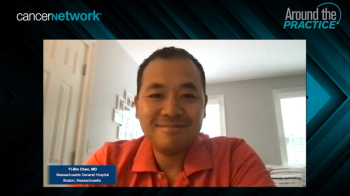
Shared insight on treatment approaches toward patients with acute graft vs host disease who experience partial response to frontline therapy.
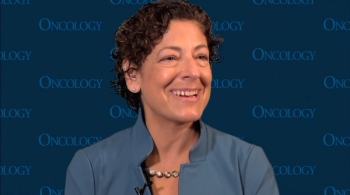
Angela DeMichele, MD, MSCE, discussed the results of the phase 2 I-SPY2 trial in patients with early breast cancer

Angela DeMichele, MD, MSCE, discussed how the phase 2 I-SPY2 trial in patients with early breast cancer is informing patient therapy decisions in difficult-to-treat situations.